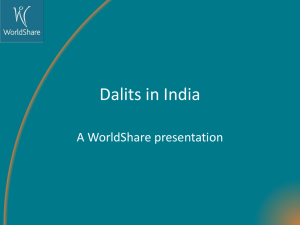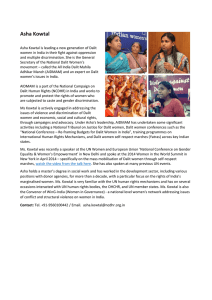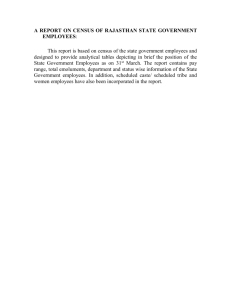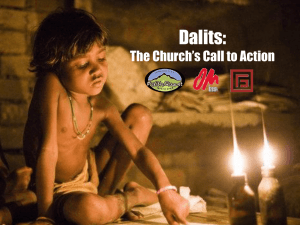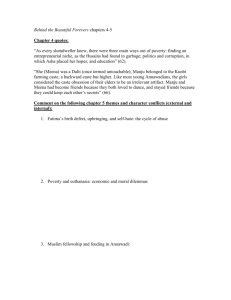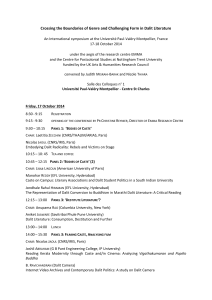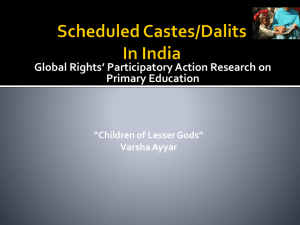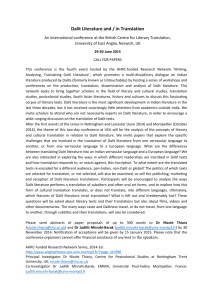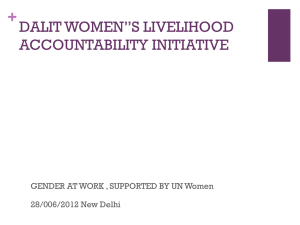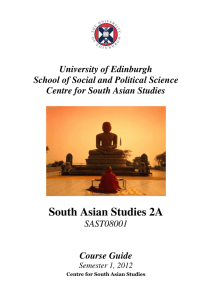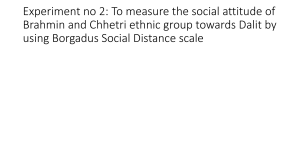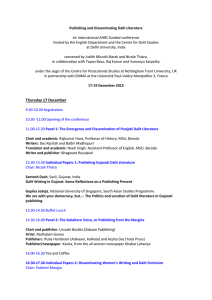Activist demands separate category for Dalit women
advertisement
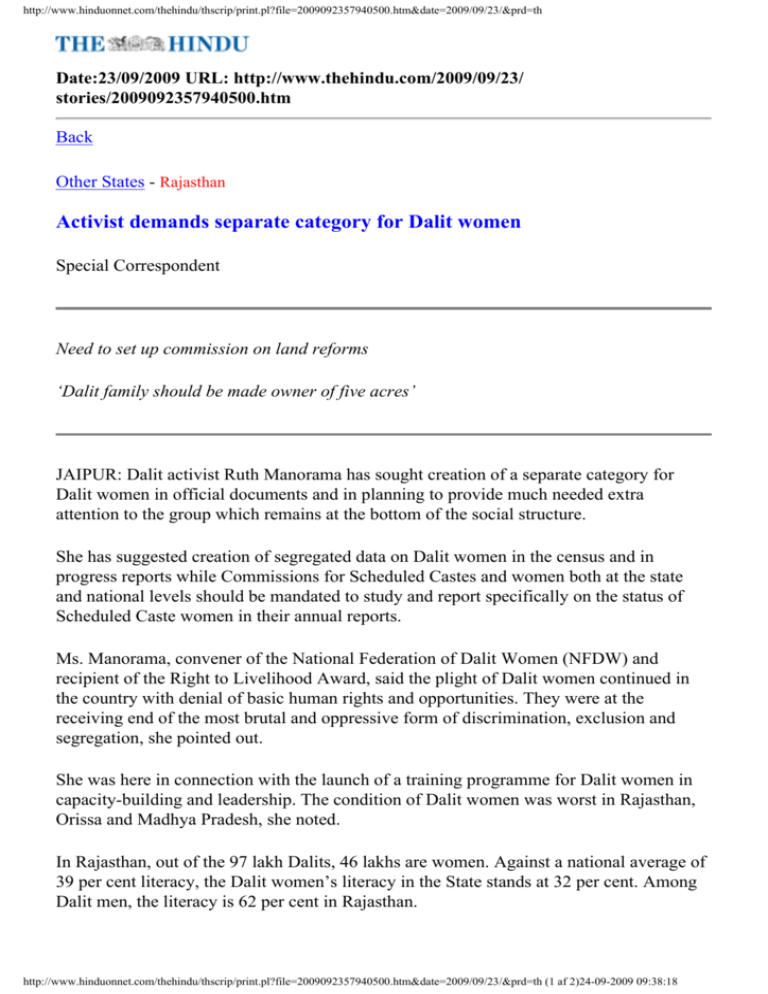
http://www.hinduonnet.com/thehindu/thscrip/print.pl?file=2009092357940500.htm&date=2009/09/23/&prd=th Date:23/09/2009 URL: http://www.thehindu.com/2009/09/23/ stories/2009092357940500.htm Back Other States - Rajasthan Activist demands separate category for Dalit women Special Correspondent Need to set up commission on land reforms ‘Dalit family should be made owner of five acres’ JAIPUR: Dalit activist Ruth Manorama has sought creation of a separate category for Dalit women in official documents and in planning to provide much needed extra attention to the group which remains at the bottom of the social structure. She has suggested creation of segregated data on Dalit women in the census and in progress reports while Commissions for Scheduled Castes and women both at the state and national levels should be mandated to study and report specifically on the status of Scheduled Caste women in their annual reports. Ms. Manorama, convener of the National Federation of Dalit Women (NFDW) and recipient of the Right to Livelihood Award, said the plight of Dalit women continued in the country with denial of basic human rights and opportunities. They were at the receiving end of the most brutal and oppressive form of discrimination, exclusion and segregation, she pointed out. She was here in connection with the launch of a training programme for Dalit women in capacity-building and leadership. The condition of Dalit women was worst in Rajasthan, Orissa and Madhya Pradesh, she noted. In Rajasthan, out of the 97 lakh Dalits, 46 lakhs are women. Against a national average of 39 per cent literacy, the Dalit women’s literacy in the State stands at 32 per cent. Among Dalit men, the literacy is 62 per cent in Rajasthan. http://www.hinduonnet.com/thehindu/thscrip/print.pl?file=2009092357940500.htm&date=2009/09/23/&prd=th (1 af 2)24-09-2009 09:38:18 http://www.hinduonnet.com/thehindu/thscrip/print.pl?file=2009092357940500.htm&date=2009/09/23/&prd=th Reiterating points in the charter of demands announced by NFDW at its national convention held in Delhi some time back, Ms. Manorama said Dalit women in India, the poorest among the marginalised communities, suffer from gender, class and caste. Protection mechanism Laws meant to protect Scheduled Caste women’s rights – Scheduled Caste, Scheduled Tribe (Prevention of Atrocities) Act 1989 and Protection of Civil Rights Act, 1995—were yet to be implemented in the true spirit of the legislations. Special protection mechanism would have to be evolved for Scheduled Caste women who have filed police complaints. There is an immediate need to set up a commission on land reforms to look into the status of land allocated to the Scheduled Castes and the availability of land for further distribution, she said, adding that every Dalit family should be made the owner of five acres of cultivable land and the ownership of the land should be in the name of women. Ms. Manorama said the Government should pursue all possible methods on this front including distribution of surplus land, revenue land and temple land and if need, it should buy land for such distribution, she added. She said the heinous practice of manual scavenging continues in many parts of the country despite the 1993 Act which prohibits manual scavenging and calls for alternative employment and construction of dry latrines. The newly introduced Self Employment Scheme for Rehabilitation of manual Scavengers, targeting 3.42 lakh of the total of 7.73 lakh has to be taken up for implementation in the mission mode, she said. Legislation is needed to enforce the right of agricultural labourers to living wages, gender parity in wages, job security and better working conditions. As 85 per cent of Dalits were engaged in the unorganised sector both in rural and urban areas, there was a need for special focus on them, she said. © Copyright 2000 - 2009 The Hindu http://www.hinduonnet.com/thehindu/thscrip/print.pl?file=2009092357940500.htm&date=2009/09/23/&prd=th (2 af 2)24-09-2009 09:38:18
